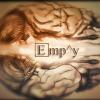transcranial magnetic stimulation
 pi-
17 Jul 2014
pi-
17 Jul 2014
http://rstb.royalsoc.../1522/1399.long <-- this is interesting, "low-frequency repetitive transcranial magnetic stimulation" can awaken 'savant' skills
This appears to be affordable and safe has documented results.
Has anyone played with it? Is there an existing thread on this subject?
 sponsored ad
sponsored ad
 tolerant
18 Jul 2014
tolerant
18 Jul 2014
This is interesting. TMS is an established depression therapy which I was considering. It has a success rate of about 30% in treatment-resistant depression I believe. However, this article makes me less inclined to pursue it. It would seem that by awakening savant-like skills, I would be inhibiting other skills (such as social skills) which we tend to associate with "normal" individuals. It is probable, however, that the configuration of TMS in the above article is different in that used for depression. As far as I know, you can set TMS to both stimulate and inhibit a certain area of the brain.
 fairy
18 Jul 2014
fairy
18 Jul 2014
However, this article makes me less inclined to pursue it. It would seem that by awakening savant-like skills, I would be inhibiting other skills (such as social skills) which we tend to associate with "normal" individuals. It is probable, however, that the configuration of TMS in the above article is different in that used for depression. As far as I know, you can set TMS to both stimulate and inhibit a certain area of the brain.
I thought the effects were temporary.
 tolerant
18 Jul 2014
tolerant
18 Jul 2014
I thought the effects were temporary.
When used as a treatment for depression, you have to have it done for about an hour every day for at least several weeks. If you don't do it every day, the effect is lost.
 tolerant
25 Jul 2014
tolerant
25 Jul 2014
Actually, I really have to thank pi- for sharing this article. I find it absolutely plausible and intuitive that rTMS treats depression by downgrading the enhanced and maladaptive tendency of depressed people to impose meaning on social and other situations, increasing their ability to see the constituent parts of an observation rather than ascribe an overall meaning to it, therefore moving the depressed towards the autistic end of the spectrum until they reach a healthy point. I actually quite like this explanation and it gives me extra motivation to finally do a course of rTMS, which I have been putting off since about the beginning of this year.
 jaiho
25 Jul 2014
jaiho
25 Jul 2014
is that with the black dog institute? I've been meaning to sign up but been lazy
 tolerant
25 Jul 2014
tolerant
25 Jul 2014
is that with the black dog institute? I've been meaning to sign up but been lazy
I live in Melbourne, and there's this trial: http://www.maprc.org...reatment-trials
But I recently got private health insurance, partly to cover these kinds of procedures. So I don't have to do a trial. But I wouldn't be surprised if Black Dog has their own trial. I had a thought of signing up for their ketamine trial but it got suspended due to lack of funding.
 Valor5
25 Jul 2014
Valor5
25 Jul 2014
Transcranial direct current stimulation over multiple days improves learning and maintenance of a novel vocabulary
- Marcus Meinzera, b, c, , 1, ,
- Sophia Jähnigena, 1,
- David A. Coplandc, d,
- Robert Darkowa,
- Ulrike Grittnerb,e,
- Keren Aviramea,
- Amy D. Rodriguezc, d,
- Robert Lindenberga,
- Agnes Flöela, b, f, ,
Abstract IntroductionRecently, growing interest emerged in the enhancement of human potential by means of non-invasive brain stimulation. In particular, anodal transcranial direct current stimulation (atDCS) has been shown to exert beneficial effects on motor and higher cognitive functions. However, the majority of transcranial direct current stimulation (tDCS) studies have assessed effects of single stimulation sessions that are mediated by transient neural modulation. Studies assessing the impact of multiple stimulation sessions on learning that may induce long-lasting behavioural and neural changes are scarce and have not yet been accomplished in the language domain in healthy individuals.
MethodThe present study probed the potential of atDCS to enhance language learning over multiple days by employing an explicit word learning paradigm. Forty healthy young participants were randomized to learning with either simultaneous atDCS or sham stimulation (N = 20/group; comparable regarding demographic variables and neurocognitive status). All participants acquired a novel vocabulary (familiar and novel object picture – non-word pairs) over five consecutive days. Two memory tasks (free recall; forced choice recognition tasks) were administered immediately after each training session. A one week follow-up tested the maintenance of learning success.
ResultsLinear mixed effects model analysis revealed superior learning during atDCS compared to sham stimulation for both familiar and novel objects. atDCS yielded a steeper learning curve and significantly more pronounced learning at the end of the training during the recall task. During the recognition task, the atDCS group reached ceiling levels earlier and overall learning success was greater. For both tasks, beneficial atDCS effects were maintained during the follow-up assessment.
ConclusionsThe present study provides direct evidence that atDCS administered during multiple learning sessions facilitates language learning and that effects are maintained over time. This study contributes important novel information about the extent of stimulation effects in the healthy brain, thereby highlighting the potential of atDCS to enhance language recovery after stroke.
 StevesPetRat
26 Jul 2014
StevesPetRat
26 Jul 2014
 tolerant
26 Jul 2014
tolerant
26 Jul 2014
Transcranial direct current stimulation over multiple days improves learning and maintenance of a novel vocabulary
- Marcus Meinzera, b, c, , 1, ,
- Sophia Jähnigena, 1,
- David A. Coplandc, d,
- Robert Darkowa,
- Ulrike Grittnerb,e,
- Keren Aviramea,
- Amy D. Rodriguezc, d,
- Robert Lindenberga,
- Agnes Flöela, b, f, ,
Abstract IntroductionRecently, growing interest emerged in the enhancement of human potential by means of non-invasive brain stimulation. In particular, anodal transcranial direct current stimulation (atDCS) has been shown to exert beneficial effects on motor and higher cognitive functions. However, the majority of transcranial direct current stimulation (tDCS) studies have assessed effects of single stimulation sessions that are mediated by transient neural modulation. Studies assessing the impact of multiple stimulation sessions on learning that may induce long-lasting behavioural and neural changes are scarce and have not yet been accomplished in the language domain in healthy individuals.
MethodThe present study probed the potential of atDCS to enhance language learning over multiple days by employing an explicit word learning paradigm. Forty healthy young participants were randomized to learning with either simultaneous atDCS or sham stimulation (N = 20/group; comparable regarding demographic variables and neurocognitive status). All participants acquired a novel vocabulary (familiar and novel object picture – non-word pairs) over five consecutive days. Two memory tasks (free recall; forced choice recognition tasks) were administered immediately after each training session. A one week follow-up tested the maintenance of learning success.
ResultsLinear mixed effects model analysis revealed superior learning during atDCS compared to sham stimulation for both familiar and novel objects. atDCS yielded a steeper learning curve and significantly more pronounced learning at the end of the training during the recall task. During the recognition task, the atDCS group reached ceiling levels earlier and overall learning success was greater. For both tasks, beneficial atDCS effects were maintained during the follow-up assessment.
ConclusionsThe present study provides direct evidence that atDCS administered during multiple learning sessions facilitates language learning and that effects are maintained over time. This study contributes important novel information about the extent of stimulation effects in the healthy brain, thereby highlighting the potential of atDCS to enhance language recovery after stroke.
Just want to make sure nobody confuses TMS with DCS - they are completely different therapies.
Forgive my naiveté, I thought that the TMS treatment for depression stimulated the part of the brain that detects the company of others. It actually makes you "more autistic" in a sense? Weird...
What do you mean by "detects the company of others"? Makes the person more sociable?
 StevesPetRat
27 Jul 2014
StevesPetRat
27 Jul 2014
No, though I think I was confusing depression treatment with an experiment in which stimulating a particular region of the brain would make the subject feel like there were other people in the room with them (I.e. When asked whether or not someone was standing behind them they would always report yes even when alone).What do you mean by "detects the company of others"? Makes the person more sociable?
 Flex
29 Jul 2014
Flex
29 Jul 2014
I also doubt that someone can just buy a pricey device or built it for Your own.




